Iranians Start Three-Day Nationwide Strikes To Oust Regime
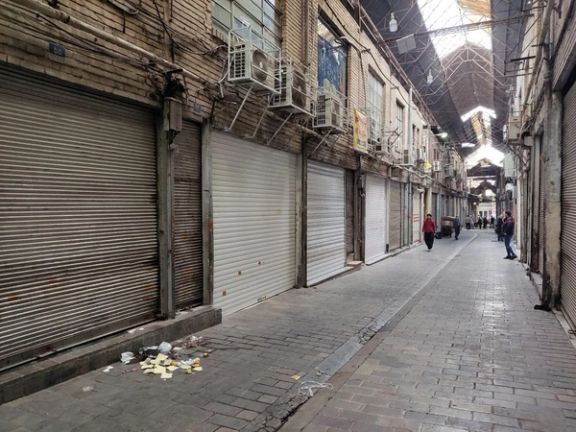
Thousands of retail businesses in Iran went on a general strike Monday after underground activist groups called for three days of protests and market closures.

Thousands of retail businesses in Iran went on a general strike Monday after underground activist groups called for three days of protests and market closures.
The three-day period started on Monday and will end on Wednesday. Nationwide protests are also expected to start Monday afternoon, while the authorities have run out of options to subdue the protesters, after resorting to deadly violence since mid-September.
Reports say businesses in over 40 cities across Iran are on strike with over 90 percent of retailers shutting their doors in a move that will be costly for the already beleaguered economy.
Tehran, Rasht, Karaj, Esfahan, Shiraz, Ardebil, Dezful are the main cities observing the shutdown to step up pressure on authorities.
Similar calls for strike action and mass mobilization in past weeks have strengthened the protest movement and led to a political crisis for the regime.
Workers at oil industry sector have also expressed support for the three-day call saying that all imprisoned workers, teachers, students must be released as soon as possible.
In universities, students have gone on strike to join the three-day movement that has called for the overthrow of the Islamic Republic.
Nearly 500 people have been killed in the unrest that erupted in September after the death in custody of Mahsa Amini, a 22-year-old woman who was detained by ‘morality police’ for breaking hijab rules.
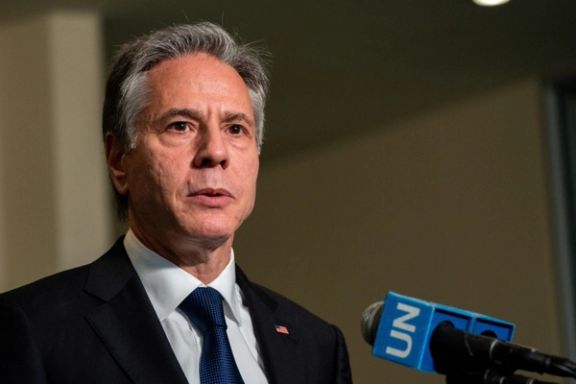
US Secretary of State Antony Blinken says whatever happens in Iran has nothing to do with the United States and everything depends on Iranian’s will.
Blinken made the comments in an interview with the CNN following claims by Iran’s Attorney General Mohammad Jafar Montazeri who said Saturday that the controversial ‘morality police’ is “abolished”.
“It’s not about us. And what we’ve seen since the killing of Mahsa Amini has been the extraordinary courage of Iranian young people, especially women… standing up for the right to be able to say what they want to say, wear what they want to wear,” Blinken said.
Blinken also referred to Washington’s sanctions on those responsible for the crackdown on protesters in Iran.
“This is about people in [Iran] trying to express their views, trying to have their aspirations met, and the response that the governments are taking to that,” he said.
Iran’s Attorney General said Saturday that the “morality police” was disbanded, while there is no official confirmation, and many Iranians see the remark as a propaganda ploy.
In a separate Interview with CBS Blinken reacted to comments by Montazeri saying “if the regime has now responded in some fashion, to those protests, that could be a positive thing. But we have to see how it actually plays out in practice. And what the Iranian people think. This is about them, and it's up to them.”
The Attorney General's comments also seemed to be a temporary tactic to diminish the severity of protests ahead of the three-day nationwide protests and strikes which began on Monday.
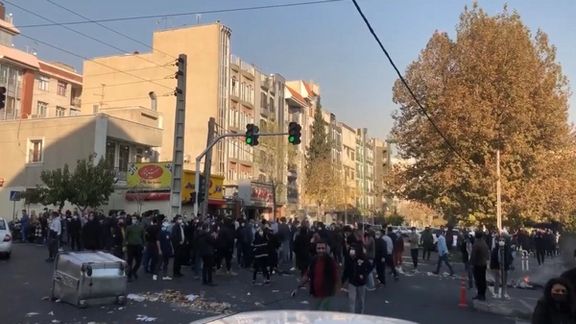
Iranian pundits increasingly point out that unlike previous protests driven by economic or electoral grievances, the current uprising demands regime change.
Reformist analyst Abbas Abdi openly said in an interview in Tehran that protests in 2009 did not call for regime change, but "the demand of current protesters is to change the regime. They do not know what will happen next, but they believe whatever that might take place will be better than the current situation."
Abdi said some of the characteristics of the current protests are that "They are deep-rooted, have taken the government by surprise, they have been continuing for a long time, and have gone further, in a way that it is impossible to return to the situation as it was before."
Abdi said that another characteristic of the movement is that the people have behaved in a way during the past 10 weeks that they can no longer retreat. They have challenged the core of the regime and Supreme Leader Ali khamenei.
He added that the main question is not, as some officials charge, that foreigners have instigated the protests. Even if we suppose that is true, it is not important who started the movement. “What is important is that it is taking place in Iran."
Abdi stressed that, "This is not a riot. This is a protest that was predicted long ago. The reason why it did not quickly follow the 2019 protests, was the coronavirus pandemic."
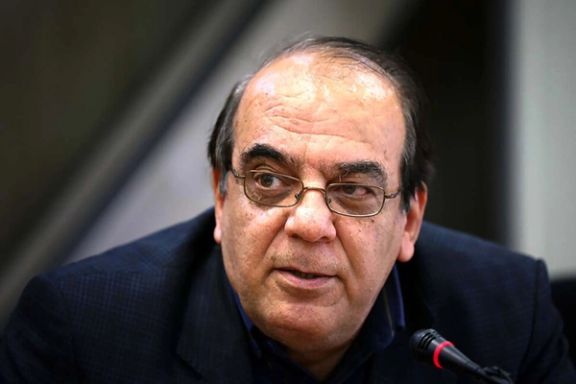
He added that the government was taken by surprise because it never pays attention to society. It is always watching other countries. All these youngsters in the streets have been in classrooms where teachers and headmasters have been in close contact with them. How could have they not noticed that something was going on? The reason they did not see it, is that no one in the government wishes to really see the society, even now when it is in turmoil. Even the intelligence organizations found out about the movement after they arrested the protesters."
Abdi said this comes while young people were not acting secretly. They even showed off what they are doing. He explained that generation Z is only the driving force of the movement. The other part, which is important but neglected is the silent majority that follows the movement. He said that many opinion polls the government did not allow to be published indicate that some 60 to 80 percent of the population support the youngsters in the streets although they may not be as vocal.
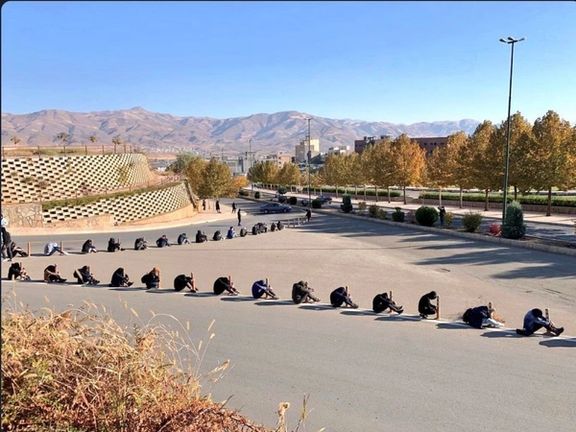
Abdi's interview coincided with the publication of an interview with Iranian American sociologist Asef Bayat with Rouydad24 news website in Iran. Bayat is the author of books such as Revolution without Revolutionaries, Street Politics, and Global Middle East, whose observations about the Arab Spring are widely acclaimed in the US academic and political circles.
He said in the interview that it is in the nature of the street that a common cause can turn a gathering of 500 individuals into a massive rally of several thousand people.
Speaking about the current Iran protests and the violence and suppression that have been going on in the streets during the past 10 weeks, Bayat said: "People do not like to be on the streets. They want to live peacefully. The reason why people take to the streets is that politics stops working. Politics means an institutional mechanism to settle political, social and economic disputes and reach a democratic agreement. When the government cannot do that and does not allow the people to have their representatives in the government, citizens tend to take part in strikes or refuse to go to classrooms. But some citizens such as those who do not have a job might take to the streets to voice their demands and to show their social power."
He went on to say, "Authoritarian governments do not tolerate protesters presence in the streets because they do not want the people to believe in their collective social force."
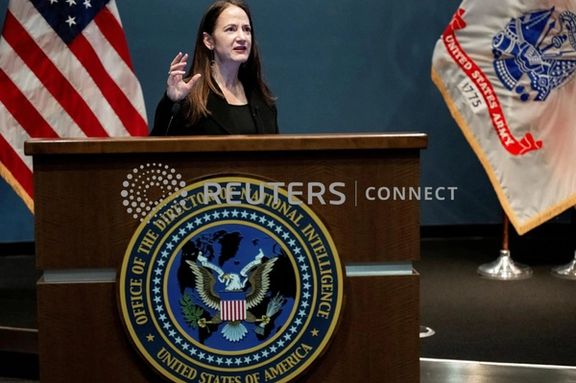
A top US intelligence official has predicted that the nationwide strikes in Iran will gradually expand to become a greater threat to the Islamic Republic.
Director of National Intelligence Avril Haines on Saturday said the Iranian government does not consider the current protests as an “imminent threat to the regime.”
In an interview with NBC News, Haines added that Iranian authorities may not see the demonstrations as a threat now but could face more unrest because of high inflation and economic uncertainty.
“We’re not seeing the regime perceive this as an imminent threat to their stability and effect,” she said. “On the other hand … they are really having challenges and even nationwide seeing sporadic close-downs of businesses, [which] from our perspective, that’s one of those things that will lead to a greater risk of unrest and instability over time.”
The popular protests demanding an end to Islamic rule started in mid-September when 22-year-old Mahsa Amini was killed in the custody of the so-called “morality police,” igniting the boldest protest movement against the Islamic Republic in its 43-year history.
Over 18,000 people have been arrested since the beginning of the protests, and some death sentences have already been issued for protesters, though none have been carried out. According to US-based HRANA on December 4, 471 protestors and 61 members of the security forces have been killed in protests since September 17.

Iranian Cinema Screenwriters Society has stopped all its activities in protest to the government’s policy of denying people’s demands for change.
In a statement published on Sunday the group said under the current conditions, its members are free to write and produce, or stop their professional activities; but the society, based on its social and professional duty, will cease any communication with government institutions at any level.”
“We deeply understand that in this new era, we are no longer the voice of the people, but it is the people who speak as the strongest social institution, and we have heard them,” added the Board of Directors in the statement.
Within the past 12 weeks of nationwide protests following the death of Mahsa Amini in police custody, several well-known figures from Iranian cinema have expressed solidarity with the protest movement.
Earlier, a member of a committee that follows up with the situation of detained artists said at least 40 filmmakers have been arrested during the national uprising against the Islamic Republic.
In an interview with Shargh daily on Saturday, Mehdi Kouhian said around 150 cinema figures have been summoned, arrested, accused, banned from leaving the country or persecuted in various ways during the recent protests.
He added that most of the detainees are "lesser-known figures whose families have not announced their names yet.”
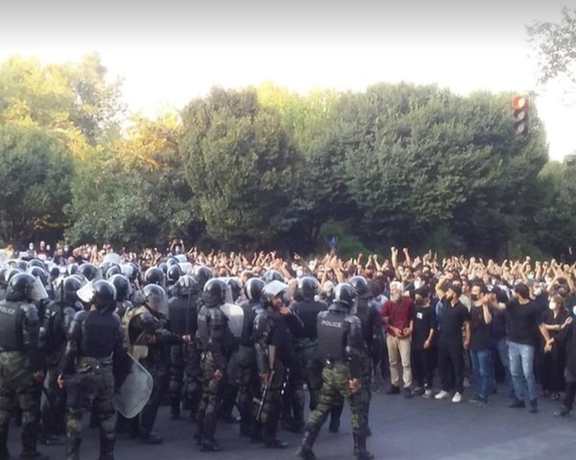
While Iranians were bracing themselves for three-day nationwide strikes and protests starting Monday, several cities on Sunday were scenes of antigovernment rallies.
People in several neighborhoods of the capital Tehran, including Ekbatan and Naziabad, held gatherings on Sunday night chanting slogans against the regime and its ruler Ali Khamenei. “Khamenei listen to the sound of revolution,” rang out in the darkness of night.
According to videos posted on social media, protesters in the northwestern city of Qazvin torched the Intelligence Ministry's banner which called on citizens to call 113 and submit their "security reports" ahead of the three-day nationwide protests and strikes.
Rallies and clashes were also reported in several other cities across the country. Clashes were particularly violent in Murmuri and Abdanan, two small towns in Ilam province, where security forces and Revolutionary Guards were attacking homes and arresting people door-to-door.
Since the current wave of protests began following the death of Mahsa Amini in custody of hijab or the so-called “morality” police, the number of Iranian women who are appearing in public without hijab is growing. But on Sunday, in a move that many people described as a publicity stunt by the Islamic Republic, reports emerged that the hijab police force has been disbanded. The news was widely covered by Persian and foreign media as a measure by the Islamic Republic to calm the unrest. "The same authority which had established this police has shut it down," Iran's Prosecutor General Mohammad Jafar Montazeri was cited as saying by state news agencies.
However, state-run media reported later in the day that the news was not correct. Al-Alam state television said foreign media were depicting Montazeri’s comments as "a retreat on the part of the Islamic Republic from its stance on hijab and religious morality as a result of the protests", but all that could be understood from his comments was that the morality police were not directly related to the judiciary.
Iranian lawmaker Nezamoddin Mousavi, however, signaled a less confrontational approach toward the protests following a closed meeting with several senior Iranian officials, including President Ebrahim Raisi. “Both the administration and parliament insist that paying attention to the people’s demand that is mainly economic is the best way for achieving stability and confronting the riots,” he said.
Numerous grassroot groups have called for protests on December 5, 6, and 7. December 7 is Student Day in Iran and marks the anniversary of the 1953 murder of several students at University of Tehran. It is a traditional day of nationwide rallies. To coincide with Student Day, protesters are calling for strikes by businesses and a rally towards Tehran's Azadi (Freedom) Square, according to posts shared on Twitter.
A statement released to the media by one such grassroot group claimed that people in at least 30 cities have announced that they will hold protests on the set dates.
Similar calls for strike action and mass mobilization have in past weeks led to an escalation of the revolt which has convulsed the country -- the biggest anti-government protests since Iran's 1979 Islamic Revolution.
The activist HRANA news agency said 470 protesters had been killed as of Saturday, including 64 minors. It said 18,210 demonstrators were arrested and 61 members of the security forces were killed.